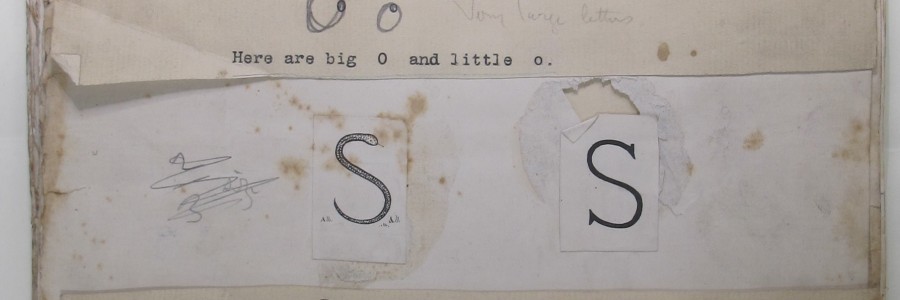
Edward Rose and the Rose Reader
A new addition to the Department of Manuscripts and University Archives collections, MS Add.10138 (Edward Rose: writings and family correspondence), tells the story of the idea and production of a book. This book, The Rose Reader: A New Way of Teaching Children to Read, was published in 1902.
In 1893 Edward Rose (playwright, journalist, theatre critic, poet and family man) decided to write a children’s reading book as he couldn’t find any that matched his system (“which is the modern system carried out completely and scientifically”). He was using this system to teach his daughters, Lucy and Dorothy (born in 1888 and 1889) to read. Rose had previously been in correspondence with Sir Isaac Pitman (or Eizah Pitman as he signed), founder of the Phonetic Institute, inventor of a shorthand system, and determined advocate of spelling reform. The new archive material includes a letter to Rose’s father outlining his intent to write a book about reading, letters to and from his daughters showing their close relationship, and the correspondence with Pitman. The archive also contains draft manuscripts of The Rose Reader which chart how a book was produced at the end of the 19th century.
One of the drafts of The Rose Reader includes the layout for pictures and text, and presented a challenge. Some of the images were held in place by rusty pins which if left in place would continue to rust and cause further damage. However, if we took the pins out then the intended layout would be lost. Colleagues in the Library’s Conservation and Collection Care department came up with the ingenious solution of stitching the items into place.
For this blog post I have highlighted just one of the stories in the Edward Rose archive, but there are many more. The archive contains scripts of 16 different plays (some unperformed) including adaptations of stories by others. It also includes theatre programmes and souvenirs, material relating to film productions of Rose’s plays, family correspondence, poetry and an unpublished book about religion and science. The archive, which is now catalogued and open to researchers, would be useful for scholars of theatre history, literature, book production, and late 19th/early 20th century society and politics. Rose often discussed politics and society in his letters to his father, particularly with reference to William Gladstone and his government.
The archive is also an (often touching) record of family interactions and relationships, life in Ipswich and London, and personal responses to death. Edward Rose’s sister (Jessie) and daughter (Lucy) both died when they were children.
The Department of Manuscripts and University Archives received the Edward Rose papers in June this year, and cataloguing has just been completed. It complements an earlier group of material which was donated to the department in 1998 (MS Add.9526). This earlier material is mostly letters from actors, actresses, theatre managers and authors offering their novels for dramatisation.

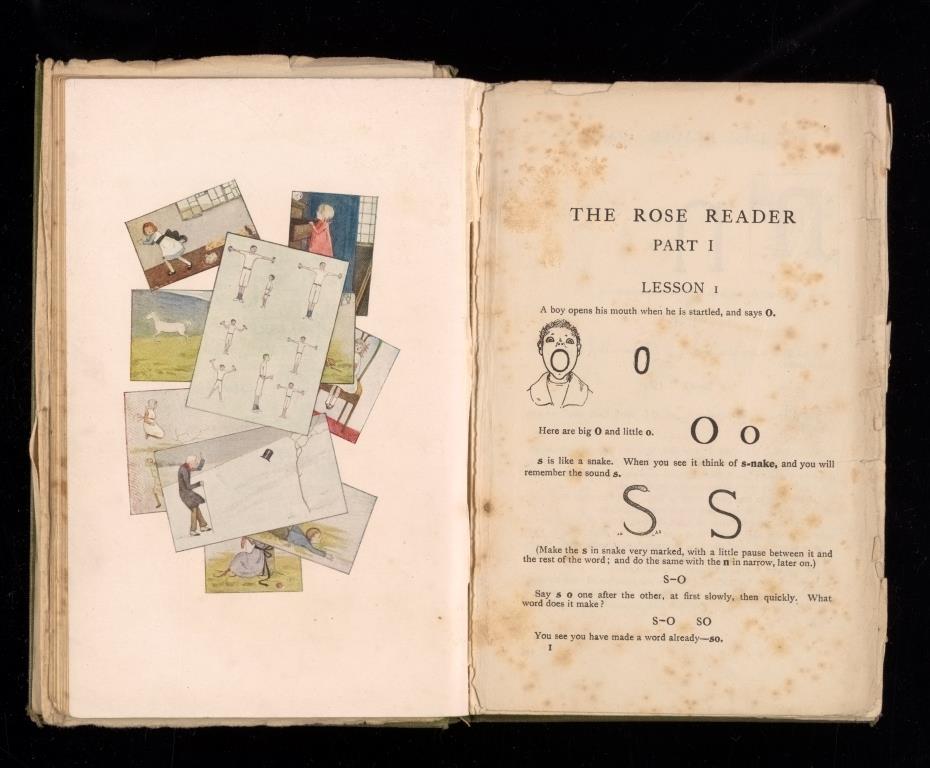
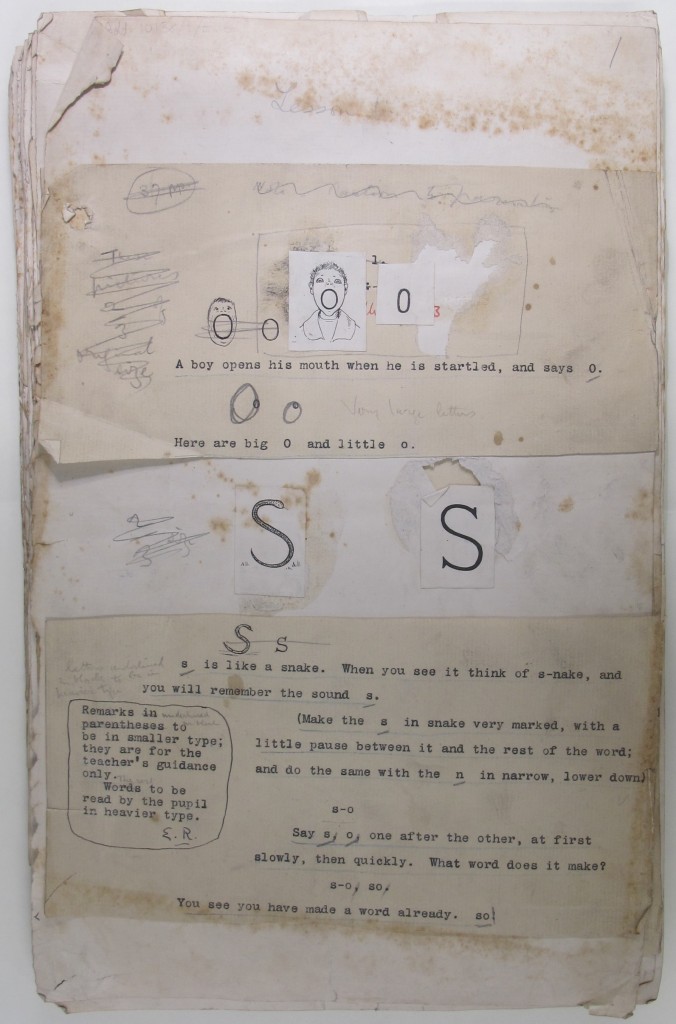
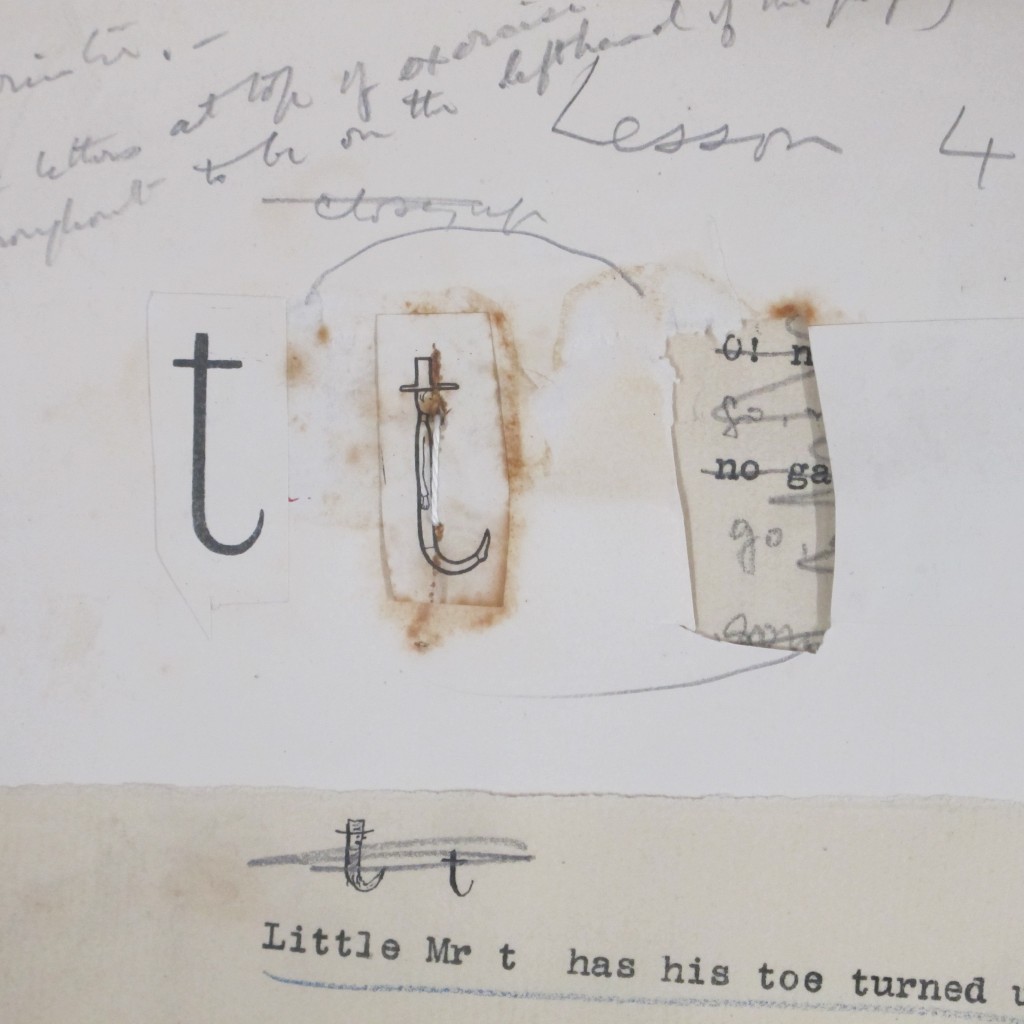
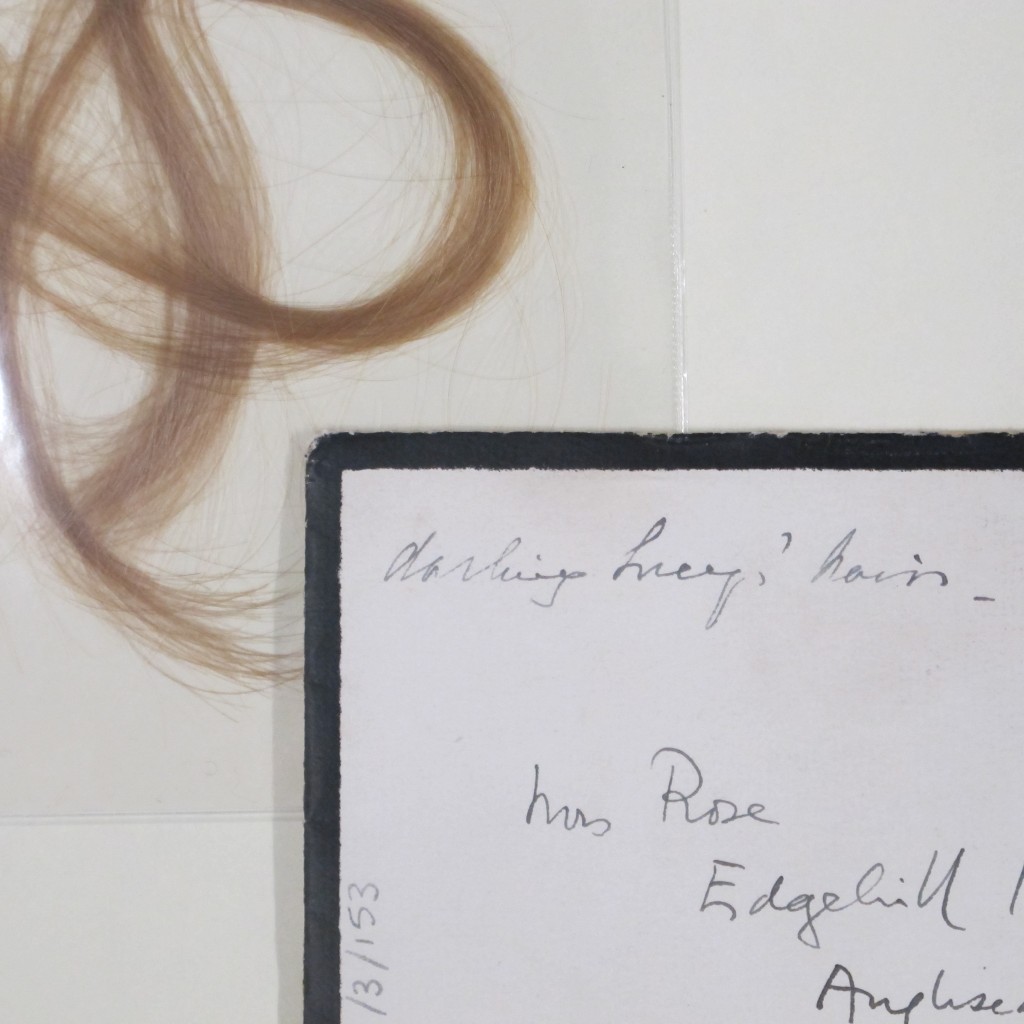
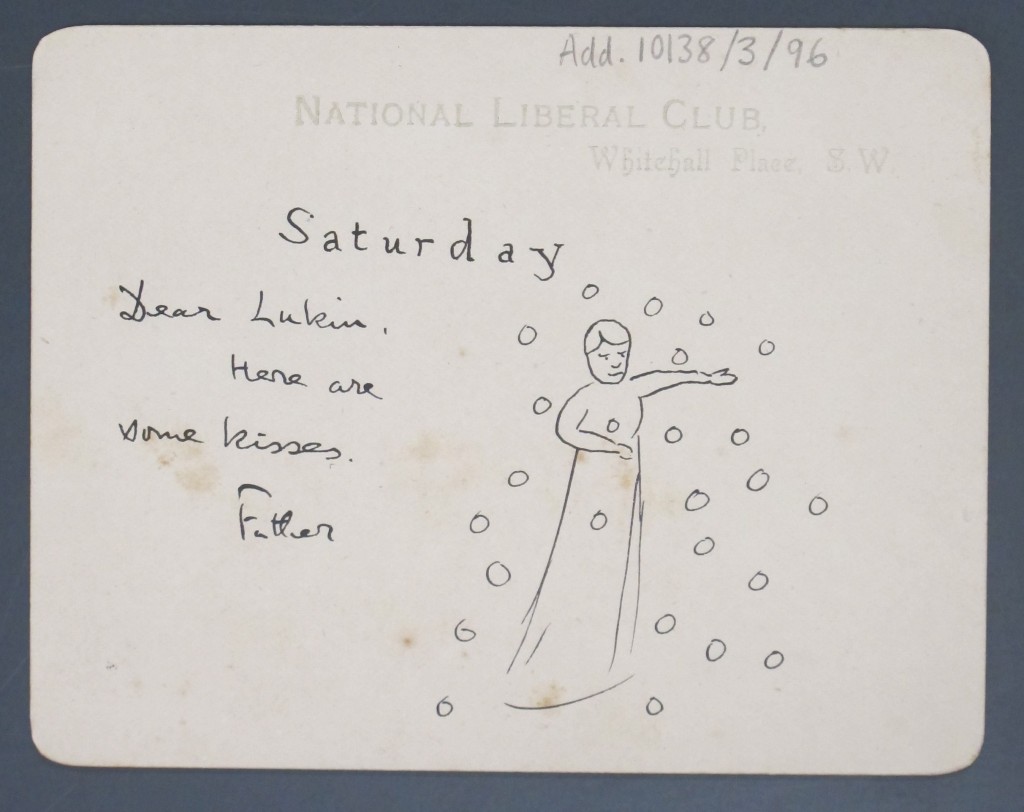
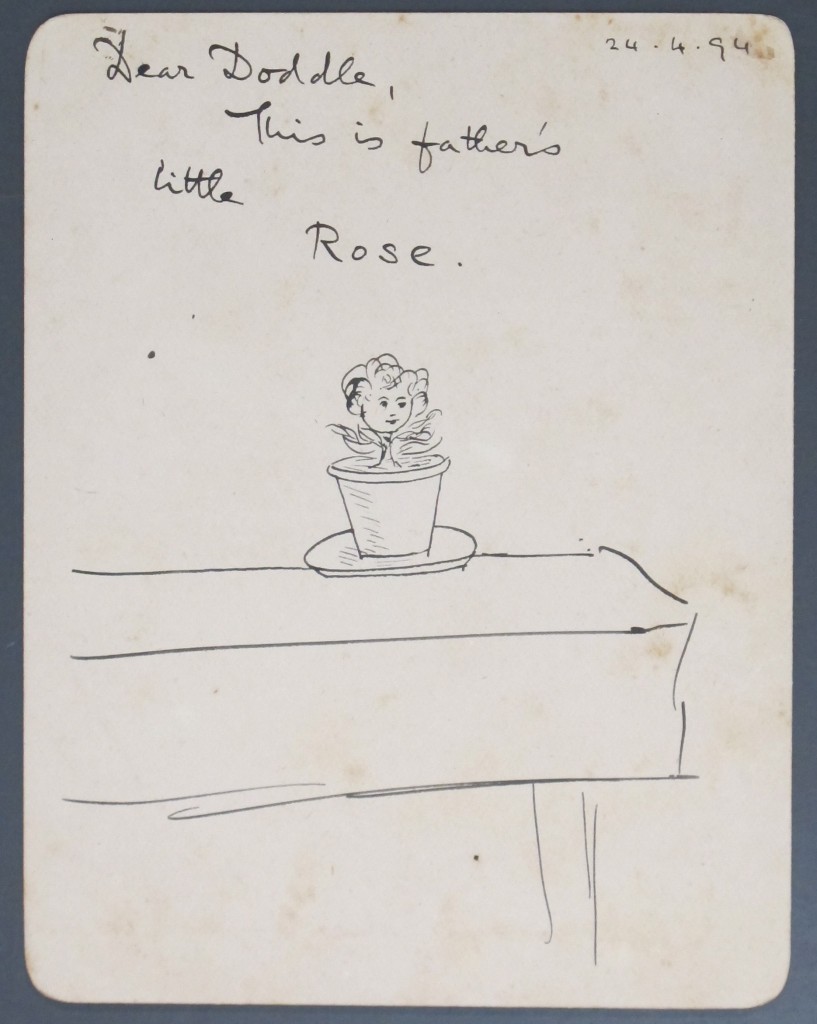
Great to see the care being taken to conserve these things which have been stored – largely unread – in a succession of my family’s attics since the death of Edward Rose (my great grandfather). Also fascinating to have had the chance to look at the materials archived earlier, before I got interested in him. Among them are Edward’s diaries which, although small, are neatly written and give a lot of detail on his life. Thank you, Madelin, for publishing the two little snippets of paternal love above – he does seem to have been a lovely man as well as an interesting one.